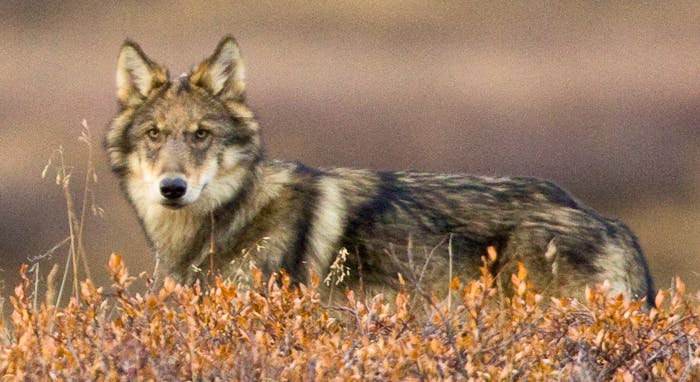Your weekly roundup of wildlife news from across the country
Big Animals Can Make a Big Difference to Climate Change
The incredibly popular video How Wolves Change Rivers has certainly helped to spread the word about the role that wolves can play in making ecosystems healthier. Now, scientists are finding that research continues to point to a similar value in many large animals, particularly in how they can help combat climate change. Their findings show that by promoting conservation of animals like wolves, bears, whales and others, we can make ecosystems better able to absorb and store carbon.
See what scientists have to say about this research >
Defenders Going to Bat for Freshwater Stingrays
When we think of stingrays we often think of oceanic stingrays, shuffling our feet as we enter the water to avoid getting stung. But, did you know there is also an entire family of freshwater stingrays that are native to South American rivers?
Discover the Ocellate River stingray and find out how we’re working to help protect it >
Channel Island Foxes Make a Full Recovery!
Just a little over 10 years ago, experts said that the endangered subspecies of foxes living on several islands off the California coast had just a 50/50 chance of escaping extinction. In the following years, agencies, conservation organizations and other experts came together in a massive conservation effort to save them. That effort has been so successful that this week, the U.S. Fish and Wildlife Service announced that three of these subspecies are fully recovered! The San Miguel, Santa Rosa, and Santa Cruz Channel Island foxes are officially the fastest recovering mammals in the entire history of the Endangered Species Act.
Learn about the efforts it took to help these foxes recover >
Ships are Killing More Endangered Whales than We Thought
An investigation into whale deaths on the west coast has led to some disturbing findings. For years, the government has attempted to limit the number of endangered whales killed by ships in the busy shipping lanes off the coast by setting slower speeds. But this latest information shows that while speed limits might be in place, few ships are actually obeying them – and whales are dying by the dozens as a result.
Read more about the findings from the NBC Bay Area Investigative Unit >
On the Road this Summer? Be Careful – So Is Wildlife
The summer travel season is well underway. Many vacationers are hitting the highways seeking summer adventure and a change of scenery. At the same time, wildlife is on the move, with animals searching for food, raising their young, and looking for new territory. But highways and wildlife don’t mix very well.
Stand up For Red Wolves
As you read this, there are no more than 60 Red Wolves in the wild. That number could reach zero if FWS does not take immediate action to protect and expand the existing wolf population, as well as prepare a revised recovery plan that ensures the recovery of Red Wolves in the wild in the Southeastern U.S. But instead of aggressively advancing Red Wolf recovery, FWS has made little effort in recent years to proactively recover the species. In fact, it has actually taken steps that have undermined the program.
Ask FWS to recommit to Red Wolf recovery now, before it’s too late! >
Snails are Going Extinct
They may not be the most appealing species, but they can be extremely valuable to an ecosystem. And like so many other underappreciated species, snails are also in trouble. Across the U.S. and around the world, scientists are struggling to keep species of snails from extinction.
Read more about how many snails are in trouble, and what scientists are doing about it >
“Future-proofing” our Pollinators
An international group of scientists is pinpointing the largest threats to bats, bees, birds and other pollinating creatures, and calling for action to address them now and into the future. Because of the major role that pollinators play in global crop production, everyone agrees that confronting the threats to pollinators worldwide is important, but identifying those threats on a global level can be a challenge.
Find out what six threats these scientists have pinpointed >



